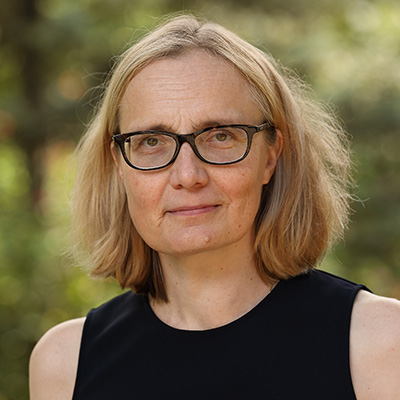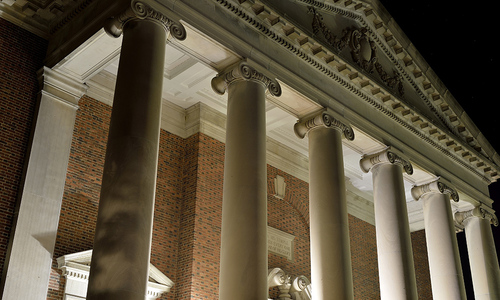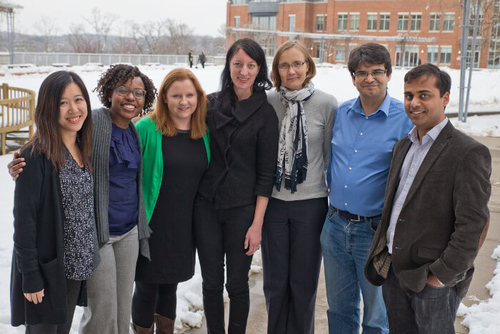
Riina Tehver
I came to Denison in 2010 after a postdoctoral fellowship at University of Maryland. I enjoy teaching a broad range of courses including introductory physics, quantum mechanics, electromagnetic theory, and laboratories. I also really enjoy doing research with students.
My research field is computational biophysics. In the broadest sense, my group wants to understand how biological complexity arises from basic physical principles. Specifically, our goal is to understand how biomolecules perform their cellular functions. We use numerical analysis and computational modeling to connect protein structures via their dynamics to their operation. Proteins are responsible for most tasks that make life happen: they create motion, support cellular structures, enable chemical reactions, and so on. We study how proteins can perform these biological tasks. We are currently working on a class of proteins called motor proteins. We build theoretical and computational models that allow us to understand the connection between the structures of the proteins, their internal dynamics, and, how to connect that to their operation.
Research
Works
Selected:
- M. Hinczewski, R. Tehver, and D. Thirumalai, Design principles governing the motility of myosin V, PNAS 110, E4059 (2013).
- M. Jayasinghe, P. Shrestha, X. Wu, R. Tehver, G. Stan, Weak Intra-Ring Allosteric Communications of the Archaeal Chaperonin Thermosome Revealed by Normal Mode Analysis, accepted to Biophys. J. (2012)
- R. Tehver, D. Thirumalai, Rigor to Post-Rigor Transition in Myosin V: Link between the Dynamics and the Supporting Architecture, Structure 18, 471 (2010).
- R. Tehver, J. Chen, D. Thirumalai. Allostery Wiring Diagrams in the Transitions that Drive the GroEL Reaction Cycle, J. Mol. Biol. 387, 390 (2009)
- R. Tehver, D. Thirumalai. Kinetic Model for the Coupling Between Allosteric Transitions in GroEL and Substrate Protein Folding and Aggregation. J. Mol. Biol. 384, 1279 (2008)

